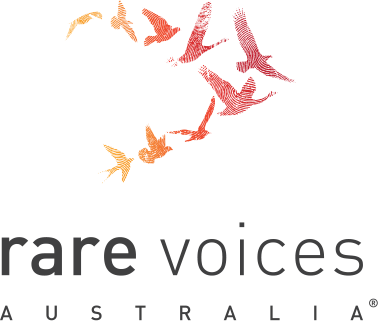Developmental Anomalies
Acrodysostosis
Rare Disease Classifications:
ORPHA:950 LD2F.16 Otomandibular dysplasia
IMPORTANT INFORMATION
The information on the Rare Awareness Rare Education (RARE) Portal is intended for educational purposes only and does not replace professional advice.
Rare diseases typically display a high level of symptom complexity and variability. Individuals diagnosed with the same rare disease may be impacted differently and each person’s experience is unique. Please seek support from qualified healthcare professionals to learn more about the most suitable care and support options for you.
If you are aware of any additional information that may benefit stakeholders with an interest in this page, or if you notice any broken links or inaccurate information, please let us know via the Contribute page.
Quick Page Search:
Emergency Management | Clinical Care Guidelines | Synonyms | Summary | Personal Stories | Symptoms | Cause/Inheritance | Diagnosis | Treatment | Clinical Care | Research | Rare Disease Organisation(s) | Support Services/Resources | Mental Health | Other | References
Emergency Management
There may be special considerations for the emergency management of individuals living with Acrodysostosis presenting to emergency departments.
Clinical Care Guidelines
We are not aware of any clinical care guidelines for Acrodysostosis in Australia. If you know of any relevant care guidelines, please let us know via the Contribute page.
Synonyms
Acrodysplasia; Arkless-Graham Syndrome; Maroteaux-Malamut Syndrome; Nasal Hypoplasia-Peripheral Dysostosis-intellectual Disability Syndrome; Peripheral Dysostosis-nasal Hypoplasia-Intellectual Disability (PNM) Syndrome
LD2F.16 Otomandibular dysplasia
Summary
Acrodysostosis is a genetic condition that affects bone development and is characterised by skeletal abnormalities, short stature, distinctive facial features and developmental delay.1-3 Acrodysostosis may be caused by genetic changes in the PRKAR1A (Acrodysostosis Type 1) or PDE4D gene (Acrodysostosis Type 2). Some individuals with Acrodysostosis may not be able to respond to certain hormones; this hormone resistance is typically associated with Acrodysostosis Type 1.1-3
Useful Links for Professionals
Personal Stories
Acrodysostosis varies between individuals, and each person’s experience is unique.
Personal story shared with Rare Voices Australia: Frankie’s Story
Symptoms
Common signs of Acrodysostosis include short stature, abnormally small hands and feet with short fingers and toes and distinctive facial features such as a broad face, widely spaced eyes and flat nose, partly caused by undeveloped facial bones.1-3 There may be other skeletal malformations affecting the spine.2
Individuals with Acrodysostosis may have delayed growth, developmental delays and intellectual disability.2,3 Some individuals may be resistant to specific hormones and display symptoms similar to those with deficiencies of those hormones.3 Obesity is also frequently observed.2,3
Please speak to your medical team to learn more about the signs and symptoms of Acrodysostosis.
Cause/Inheritance
Acrodysostosis may be caused by genetic changes in either the PRKAR1A or PDE4D gene. These genetic changes typically occur as a new spontaneous (de novo) mutation in affected individuals before birth, but can be inherited in an autosomal dominant manner.1-3
Factsheet: Autosomal dominant inheritance (NSW Government’s Health Centre for Genetics Education)
If you would like to learn more about the inheritance and impact of this condition, please ask your doctor for a referral to a genetic counsellor. Genetic counsellors are qualified allied health professionals who can provide information and support regarding genetic conditions and testing. More information on genetic counselling can be found on the National Services page and specific State and Territory Services pages on the RARE Portal.
Diagnosis
Diagnosis of Acrodysostosis may be based on clinical evaluation of symptoms including X-ray imaging to detect skeletal abnormalities, and confirmed by genetic testing to identify changes in the PRKAR1A or PDE4D genes.3
A differential diagnosis can rule out other conditions that have similar symptoms, such as Brachydactyly Type E, Pseudohypoparathyroidism 1a, Pseudopseudohypoparathyroidism (Albright hereditary osteodystrophy, AHO), 5q12.1 Haploinsufficiency Syndrome and 2q37 Microdeletion Syndrome.2,3
Treatment
There is no standardised treatment for Acrodysostosis.3 Treatment may vary according to symptoms and may include physical therapy and surgery to correct specific abnormalities.2 A multidisciplinary medical team is often required. Individuals diagnosed with Acrodysostosis should also be evaluated for hormone resistance and treated accordingly.3
It is best to speak with your medical team to learn more about management strategies for Acrodysostosis.
Clinical Care
Healthcare professionals involved in the treatment or management of Acrodysostosis may include general practitioners (GP), paediatricians, geneticists, physiotherapists, orthopaedics, paediatric endocrinologists, orthodontists, neurologists, ophthalmologists and physiotherapists.2 The need for different healthcare professionals may change over a person’s lifetime and may extend beyond those listed here.
Research
Please visit Australian Clinical Trials to learn about clinical trials for Acrodysostosis in Australia; there may not be any clinical trials currently available.
Information regarding clinical trials for Acrodysostosis in other countries can be found at ClinicalTrials.gov; there may not be any clinical trials currently available.
It is best to discuss your interest in any clinical trials with your medical team to determine suitability and eligibility.
Rare Disease Organisation(s)
Global Organisation:
Acrodysostosis Support and Research
Website: https://www.acrodysostosis.org/
Contact form: https://www.acrodysostosis.org/contact
Acrodysostosis Support and Research are a group of people from across the world brought together by the shared goal of learning more about the rare genetic disease, Acrodysostosis, and are made up of the people who are living with the disease, their parents, family members, and friends. The group also includes scientists and doctors who are interested in researching the disease to learn more about it.
Please note that RVA does not necessarily monitor or endorse each group/organisation’s operational governance.
Support Services/Resources
For information on available government and social services that provide support for individuals with a rare disease, please visit the National and State Services pages.
Mental Health
Please visit the ‘Mental Health’ sections listed on the National and State Services pages.
Other
Further information on Acrodysostosis can be found at:
- Genetic and Rare Diseases (GARD) Information Center: Acrodysostosis
- National Organization for Rare Disorders (NORD): Acrodysostosis
References
- Genetic and Rare Diseases (GARD) Information Center. Acrodysostosis. Accessed 30 April 2024. https://rarediseases.info.nih.gov/diseases/5724/acrodysostosis
- National Organization for Rare Disorders (NORD). Acrodysostosis. Accessed 30 April 2024. https://rarediseases.org/rare-diseases/acrodysostosis/
- Orphanet. Acrodysostosis. Accessed 30 April 2024. https://www.orpha.net/en/disease/detail/950
Page Last Updated
22/05/2024 13:10
